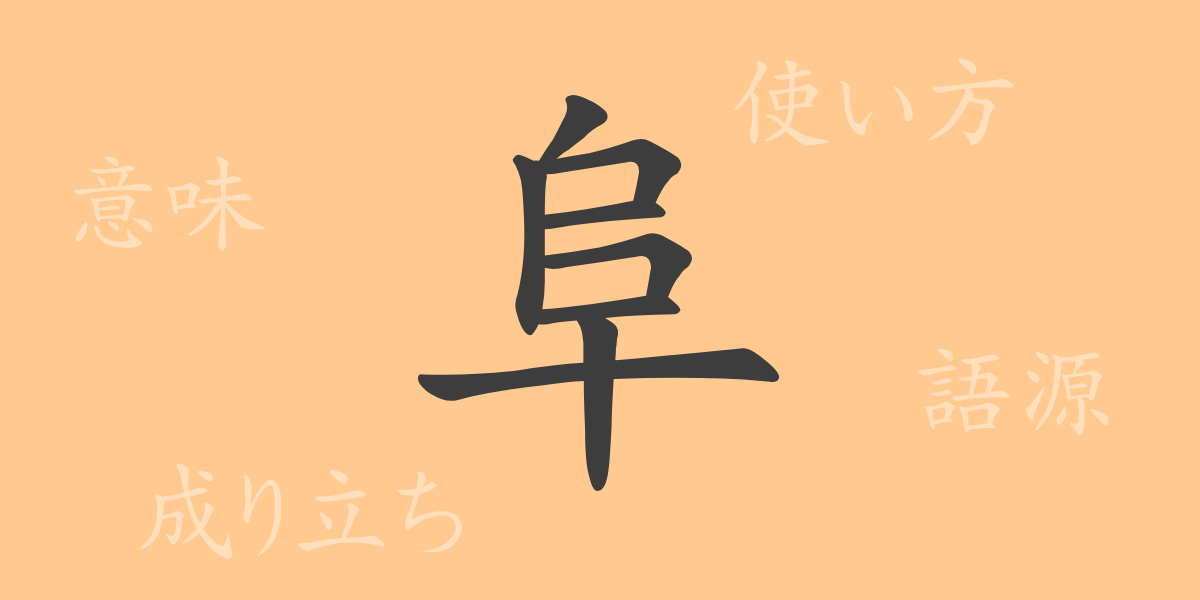The beauty of the Japanese language is also reflected in its characters. One of the 常用漢字 (jōyō kanji) is “阜 (fu),” which symbolizes the depth of Japanese culture and language. In this article, we delve into the origins, meanings, usage, readings, and idiomatic expressions involving “阜 (fu),” uncovering its charm.
Origins of 阜 (fu) (Etymology)
The kanji “阜 (fu)” is a combination of “土 (tsuchi)” meaning soil, and the radical “⻖” indicating a mountain. It was used in ancient China to denote land, evoking images of mountains and hills. From this form, it came to symbolize land, earthworks, and further extended to signify wealth and prosperity.
Meanings and Usage of 阜 (fu)
“阜 (fu)” primarily means “hill” or “earthworks,” and by extension, it can also mean “abundance” or “prosperity.” Additionally, it is frequently used in place names, signifying specific locations.
Readings, Stroke Count, and Radical of 阜 (fu)
Despite its rich shape and meaning, the kanji “阜 (fu)” has a relatively simple structure.
- Readings: On’yomi (音読み) is “フ (fu),” Kun’yomi (訓読み) is “おか (oka)”
- Stroke count: 8 strokes
- Radical: 阜 (おかへん, oka-hen)
Idiomatic Expressions, Proverbs, and Words Using 阜 (fu)
Here are some idiomatic expressions and words that include “阜 (fu)”:
- 阜陽 (ふよう, Fuyou): A place name in China, also used as a personal name in Japan.
- 富士山 (ふじさん, Fujisan): The name of Japan’s highest peak, Mt. Fuji, which also conveys the meanings of “immortality” and “uniqueness” due to its phonetic resemblance to “不死 (fushi)” and “無二 (muni).”
- 阜翠 (ふすい, Fusui): A term representing lush green hills.
These idiomatic expressions and words help convey the richness and prosperity associated with “阜 (fu)” in the Japanese language.
Summary of 阜 (fu)
Understanding the meaning embedded in each kanji is key to deepening one’s understanding of the Japanese language. “阜 (fu),” as its form suggests, represents natural landscapes and prosperity, and has been cherished in Japanese for centuries. As seen in place names and idiomatic expressions, it is a deeply rooted element in our daily lives, carrying a rich symbolic significance.

























